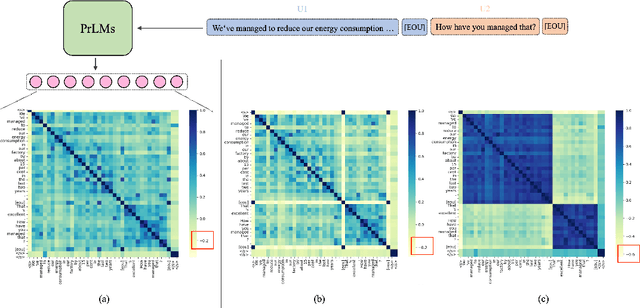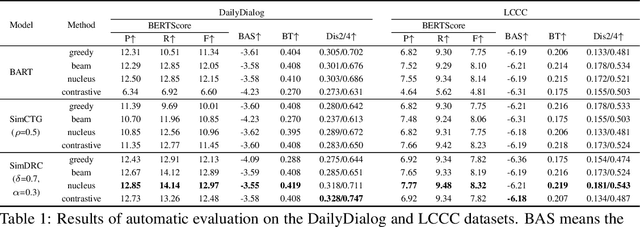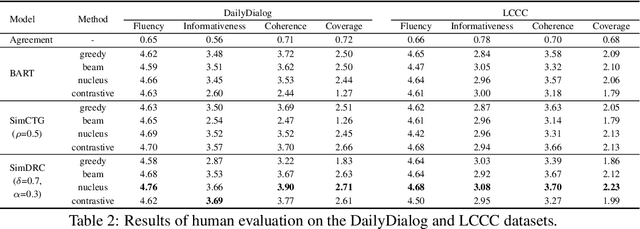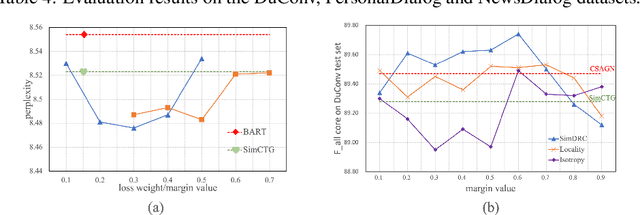Learning Locality and Isotropy in Dialogue Modeling
Paper and Code
May 29, 2022



Existing dialogue modeling methods have achieved promising performance on various dialogue tasks with the aid of Transformer and the large-scale pre-trained language models. However, some recent studies revealed that the context representations produced by these methods suffer the problem of anisotropy. In this paper, we find that the generated representations are also not conversational, losing the conversation structure information during the context modeling stage. To this end, we identify two properties in dialogue modeling, i.e., locality and isotropy, and present a simple method for dialogue representation calibration, namely SimDRC, to build isotropic and conversational feature spaces. Experimental results show that our approach significantly outperforms the current state-of-the-art models on three dialogue tasks across the automatic and human evaluation metrics. More in-depth analyses further confirm the effectiveness of our proposed approach.
 Add to Chrome
Add to Chrome Add to Firefox
Add to Firefox Add to Edge
Add to Edge